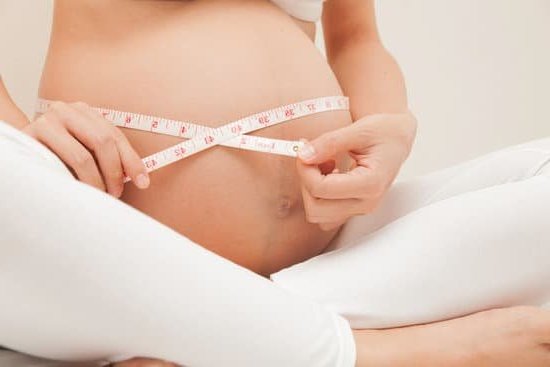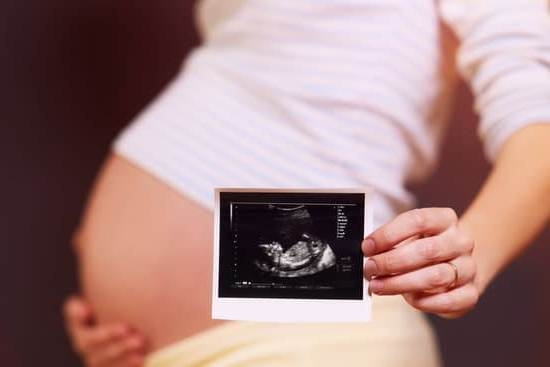Are you wondering how soon a blood test can detect pregnancy? Many women want to know as early as possible whether they are pregnant, and a blood test can often provide the earliest and most accurate results.
In this article, we will explore the timing of pregnancy detection through blood tests, the differences between blood and urine pregnancy tests, and important factors that can affect the accuracy of blood pregnancy tests. We will also discuss the importance of getting a blood pregnancy test and what to expect during the process.
Pregnancy testing is an important aspect of reproductive health for many women. It provides crucial information that can guide decisions about prenatal care, lifestyle choices, and family planning. Understanding the various methods of pregnancy testing, including both urine and blood tests, can help individuals make informed decisions about when and how to confirm their pregnancy status.
One of the key factors in understanding how soon a blood test can detect pregnancy is having a basic knowledge of the menstrual cycle and ovulation. This knowledge can provide insight into when it may be appropriate to take a pregnancy test and when accurate results may be obtainable. By exploring these concepts, individuals can better understand how their bodies work and how to interpret the results of different types of pregnancy tests.
Understanding the Menstrual Cycle and Ovulation
The menstrual cycle is the monthly series of changes a woman’s body goes through in preparation for a possible pregnancy. It involves the release of an egg from the ovaries, as well as the thickening of the uterine lining in anticipation of fertilization. Ovulation, on the other hand, refers to the release of a mature egg from the ovary, which then moves into the fallopian tube where it can be fertilized by sperm.
For women with regular menstrual cycles, ovulation typically occurs around 14 days before the start of their next period. This means that for those with a 28-day cycle, ovulation may occur around day 14. Understanding one’s menstrual cycle and when ovulation occurs is crucial when trying to conceive or in determining how soon a blood test can detect pregnancy.
Ovulation plays a major role in fertility and pregnancy detection because it is during this time that successful conception is most likely to occur. As such, knowing when you are ovulating can help you time when to take a blood pregnancy test for accurate results.
Understanding your menstrual cycle and ovulation can also guide health care providers on what stage of pregnancy testing will yield reliable results. Understanding these concepts allows women to gauge how soon can a blood test detect pregnancy accurately based on their personal cycle.
Differences Between Blood and Urine Pregnancy Tests
When it comes to pregnancy testing, there are two main options: urine tests and blood tests. Both types of tests can accurately detect the presence of pregnancy hormones, but there are some key differences between the two.
Here are some of the main differences between blood and urine pregnancy tests:
- Sensitivity: Blood tests for pregnancy are generally more sensitive than urine tests, meaning they can detect lower levels of the hormone hCG (human chorionic gonadotropin). This makes them capable of detecting pregnancy earlier than most urine tests.
- Accuracy: Blood tests are considered to be more accurate than urine tests, particularly in the early stages of pregnancy. They can provide quantitative results, indicating the specific level of hCG in the blood, which can be helpful for monitoring the progression of a pregnancy.
- Timing: One of the biggest differences between blood and urine pregnancy tests is how soon they can detect pregnancy. While most over-the-counter urine tests can detect pregnancy around the time of a missed period (approximately 4-5 days after implantation), a blood test can detect hCG as early as 7-12 days after conception. This makes it one of the earliest ways to confirm a suspected pregnancy.
In addition to these differences, it’s important to note that blood tests for pregnancy must be conducted by a healthcare provider, usually at a clinic or doctor’s office. This means that while blood tests may offer earlier and more accurate results, they also require a visit to a medical professional.
If you suspect you might be pregnant and want to confirm with a blood test, it’s best to consult with your healthcare provider about when would be the best time to take the test for accurate results.
How Soon Can a Blood Test Detect Pregnancy
When Can a Blood Test Detect Pregnancy?
One of the main advantages of a blood pregnancy test is its ability to detect pregnancy very early on. In fact, it can detect pregnancy as soon as 7-12 days after conception. This means that it can provide accurate results even before a missed period, making it one of the most sensitive and reliable methods for detecting early pregnancy.
How Does a Blood Test Detect Pregnancy Sooner?
The reason why a blood test can detect pregnancy sooner than a urine test is because hCG levels rise rapidly in the early stages of pregnancy. While the concentration of hCG may be too low to be detected by a urine test, it can already be measured accurately in the bloodstream through a blood test. This makes it an ideal option for women who are eager to find out if they are pregnant as soon as possible.
When Is the Best Time to Get a Blood Pregnancy Test?
For women who suspect they may be pregnant, getting a blood pregnancy test done around 7-12 days after conception can provide accurate results. However, for those who have irregular periods or are unsure about when they ovulated, it may be best to wait until after a missed period to ensure the most accurate results.
Factors That Can Affect the Accuracy of Blood Pregnancy Tests
A blood pregnancy test is one of the most accurate ways to determine if a woman is pregnant. However, there are certain factors that can affect the accuracy of these tests. One factor that can impact the results of a blood pregnancy test is timing. In general, the accuracy of a blood pregnancy test depends on how soon it is taken after conception.
Another factor that can affect the accuracy of a blood pregnancy test is the presence of certain medications in the woman’s system. Some medications, such as fertility drugs and certain types of hormonal contraceptives, can interfere with the results of a blood pregnancy test.
Additionally, certain medical conditions, such as ovarian cysts and ectopic pregnancies, can also affect the accuracy of blood pregnancy tests. These conditions can cause elevated levels of hCG (human chorionic gonadotropin), the hormone that is used to detect pregnancy in blood tests, leading to a false positive result.
It’s important to keep in mind that while blood pregnancy tests are highly accurate, they are not foolproof. If you suspect that you may be pregnant but receive a negative result from a blood test and continue to experience symptoms such as nausea and breast tenderness, it’s advisable to follow up with your healthcare provider for further testing or evaluation.
| Factors Affecting Accuracy | Impact |
|---|---|
| Timing | Can determine how soon hCG levels are detectable |
| Medications | Some medications can interfere with results |
| Medical Conditions | Ovarian cysts and ectopic pregnancies can lead to false positive results |
Importance of Getting a Blood Pregnancy Test
When it comes to confirming a pregnancy, many women wonder about the accuracy of different pregnancy tests. While urine tests are more commonly used at home, blood tests can provide more accurate results, especially in the early stages of pregnancy. Understanding the importance of getting a blood pregnancy test can help women make informed decisions about their reproductive health.
Why Choose a Blood Pregnancy Test
One of the main reasons why women may opt for a blood pregnancy test is its ability to detect pregnancy much earlier than urine tests. While urine tests typically detect pregnancy around 10-14 days after conception, blood tests can detect pregnancy as early as 6-8 days after ovulation. This early detection is particularly beneficial for women who are trying to conceive or have irregular menstrual cycles.
Accuracy and Reliability
Blood pregnancy tests are known for their accuracy and reliability, with some studies suggesting that they can detect hCG-the hormone produced during pregnancy-with nearly 100% accuracy. This makes them an ideal choice for women who want to confirm their pregnancy early on or have had inconclusive results from urine tests. Additionally, blood tests can measure the exact levels of hCG in the blood, providing healthcare providers with valuable information about the progress of the pregnancy.
Healthcare Provider Guidance
Another important reason to consider a blood pregnancy test is the guidance provided by healthcare professionals. These tests are typically administered in a clinical setting, allowing healthcare providers to offer counseling and support based on the results. This guidance can be crucial for women who may be facing unexpected pregnancies or need additional medical care due to health complications. Overall, choosing a blood pregnancy test ensures that women receive comprehensive care and support throughout this significant time in their lives.
As we explore how soon a blood test can detect pregnancy, it becomes evident that these tests play a crucial role in confirming pregnancies with precision and reliability. With their ability to detect hCG levels much earlier than urine tests and provide accurate results, they offer numerous benefits for women seeking confirmation of their pregnancies. Ultimately, understanding these advantages emphasizes the importance of getting a blood pregnancy test for accurate and timely results.
What to Expect During a Blood Pregnancy Test
When you go in for a blood pregnancy test, you can expect the procedure to be quick and relatively painless. The healthcare provider will draw a small amount of blood from your arm, typically from the inside of your elbow. The needle used is similar to those used for routine blood tests, so if you are comfortable with needles, the process should not cause much discomfort.
After the blood sample is taken, it will be sent to a laboratory for analysis. The results from a blood pregnancy test can often be available within 24 hours, so you may not have to wait long to find out if you are pregnant. Some clinics may even offer same-day results for more urgent cases.
It’s important to note that a blood pregnancy test is essentially checking for the presence of the hormone hCG (human chorionic gonadotropin) in your bloodstream. This hormone is produced by the placenta shortly after a fertilized egg attaches to the uterine lining and begins producing as soon as implantation takes place.
Therefore, taking a blood pregnancy test too soon after possible conception may result in a false negative result as there may not yet be enough hCG in your system for detection.
Other Signs of Pregnancy to Look Out For
When it comes to detecting pregnancy, there are several signs and symptoms that women can look out for. These signs can provide some insight into whether or not a woman may be pregnant, even before taking a blood test. Here are some common signs of pregnancy to be aware of:
- Missed Period: One of the most obvious signs of pregnancy is a missed period. If a woman’s menstrual cycle is regular and she has not gotten her period when expected, it could be an indication of pregnancy.
- Breast Changes: Pregnancy can cause noticeable changes in the breasts, including tenderness, swelling, and darkening of the nipples.
- Fatigue: Many women experience fatigue during early pregnancy due to hormonal changes and increased progesterone levels.
- Nausea and Morning Sickness: Another common sign of pregnancy is nausea and vomiting, particularly in the morning. This can start as early as 2-3 weeks after conception.
In addition to these physical symptoms, some women may also experience emotional changes such as mood swings or heightened emotions. It’s important to note that every woman’s experience with pregnancy symptoms can vary, so not all women will experience the same signs. However, being aware of these potential indicators can help women determine whether they should take a blood test for confirmation.
It’s also worth mentioning that these signs are not exclusive to pregnancy and could be attributed to other factors or conditions. However, if a woman experiences several of these symptoms and has reason to believe she may be pregnant, it’s important for her to seek medical advice and consider taking a blood test to confirm pregnancy. Understanding these potential signs can help women make informed decisions about their reproductive health and take appropriate steps if needed.
Conclusion
In conclusion, understanding when to take a blood pregnancy test for accurate results is crucial for women who are trying to conceive or suspect they may be pregnant. A blood test can detect pregnancy earlier than a urine test, as early as 6-8 days after ovulation. This makes it the most reliable method for early detection, especially for women with irregular menstrual cycles or who are actively tracking their ovulation.
It is important to consider the factors that can affect the accuracy of blood pregnancy tests, such as medications and certain medical conditions. Additionally, knowing what to expect during a blood pregnancy test can help alleviate any anxiety or concerns surrounding the process. Women can also look out for other signs of pregnancy, such as missed periods, breast tenderness, and nausea, which may prompt them to consider getting a blood test for confirmation.
Ultimately, taking a blood pregnancy test at the appropriate time can provide accurate results and peace of mind for women who are eager to know if they are pregnant. Whether done at home with a home testing kit or at a healthcare provider’s office, knowing how soon a blood test can detect pregnancy is valuable information for anyone hoping to start or expand their family.
Timing is key when it comes to detecting pregnancy with certainty and planning for the future.
Frequently Asked Questions
How Early Can You Get a Blood Test to Confirm Pregnancy?
A blood test can typically confirm pregnancy as early as 7-12 days after conception. This is earlier than a urine pregnancy test, which usually detects pregnancy around 2 weeks after conception.
How Long Does It Take for a Blood Test to Show Positive on a Pregnancy Test?
A blood test can show a positive result in detecting pregnancy approximately 6-8 days after ovulation. This is earlier than a urine pregnancy test, which generally shows positive around 10-14 days after conception.
What Is the Earliest Detection Pregnancy Test?
The earliest detection pregnancy tests on the market claim to detect hCG levels as low as 6.4mIU/mL, which allows them to detect pregnancy up to 6 days before a missed period. These early tests can give women an answer sooner than traditional tests.

Welcome to my fertility blog. This is a space where I will be sharing my experiences as I navigate through the world of fertility treatments, as well as provide information and resources about fertility and pregnancy.





